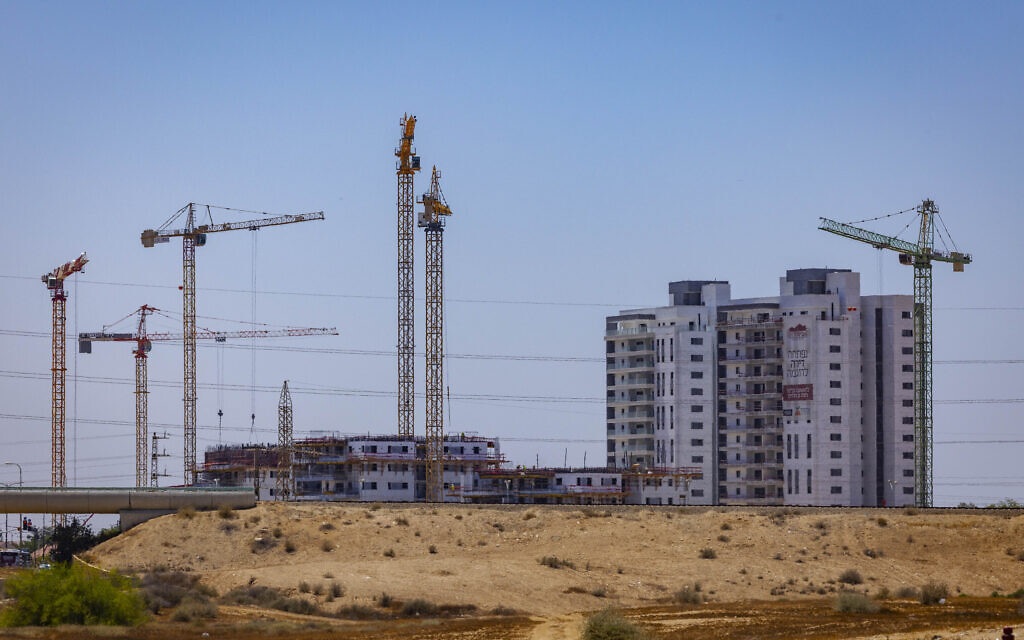The Israeli real estate market is experiencing a significant downturn, with the number of deals closed in February decreasing by 41% compared to the previous year. This marks one of the weakest periods since 2003, according to the Ministry of Finance’s report published yesterday. The sharp decline in rates has been recorded since April, when the Bank of Israel began raising interest rates in the economy, making mortgage repayments more expensive and driving buyers away from sales offices. This is further compounded by public uncertainty in recent months, following the government’s promotion of judicial reform.
The second-hand apartment market has been hit particularly hard, with a 48% decrease in transactions compared to the previous year. This trend is evident across neighborhoods and cities, with Hadera, Rehovot, Tiberias, and Be’er Sheva experiencing the sharpest declines. The shelf life of apartments sold by housing developers has also increased, with the average shelf life as of February being 39 months, a 120-day increase compared to the same period last year.
Sales promotions offered by many contractors have helped prop up the new apartment market for now, but this downward trend does not stop there, with contractor sales decreasing by 27% compared to February last year. Experts attribute this trend to increasing financial pressure on contractors, which is expressed in their need to generate cash flow while the interest rate increasingly burdens their financing expenses. The cut in the contractors’ potential cash flow from sales this month is estimated at NIS 5.7 billion, a real drop of 34% compared to February 2022 and the lowest level since May 2020, with the outbreak of the Corona epidemic.

Investors are also disappearing from the local real estate scene, with a 34% decrease in investor purchases compared to February last year, and their share of all transactions in the housing market this month was only about 16%. The increase in interest rates erodes the returns on assets, which are already considered low in Israel. The flight of investors is present in all corners of the country, although it is particularly noticeable in the Hadera, Tel Aviv, and Haifa areas.
In the long term, the reduction of the apartment stock by investors may be paid for by apartment renters, who make up a third of the households in Israel. The rental market is overwhelmingly dependent on private apartment owners, and efforts to create an alternative market for institutional rentals have yet to produce significant results on the ground.
The trend towards lower-priced apartments in the periphery, against the background of the current interest rate environment, is reflected in the shift of buyers from demand areas in the center of the country to the southern periphery. This shift is also evident in recent data from the Bank of Israel, which shows that the average mortgage taken out by Israelis has been steadily decreasing in recent months.
Overall, the decline in the Israeli real estate market has implications for both the housing market and the economy as a whole. Clearly, the rising cost of financing is being felt by both builders and Israeli families. Consequently, the government will need to carefully consider market-stabilizing policies. However, until the Bank of Israel begins cutting interest rates, it is unlikely that the situation will change significantly. This action will not only provide homeowners with a sigh of relief, but it will also boost the Israeli economy.





0 Comments